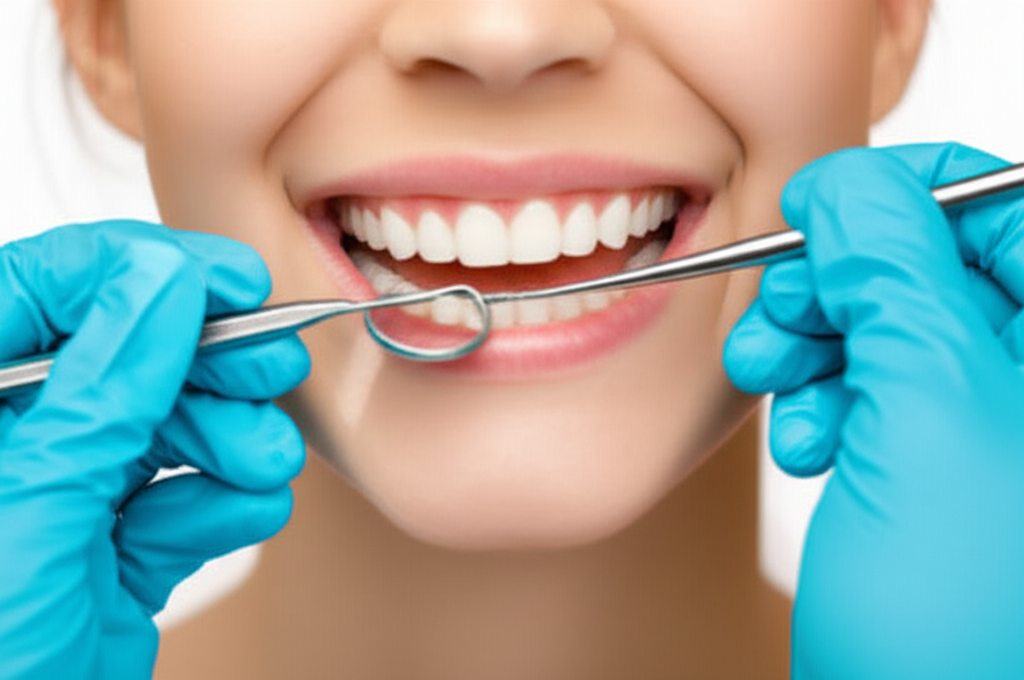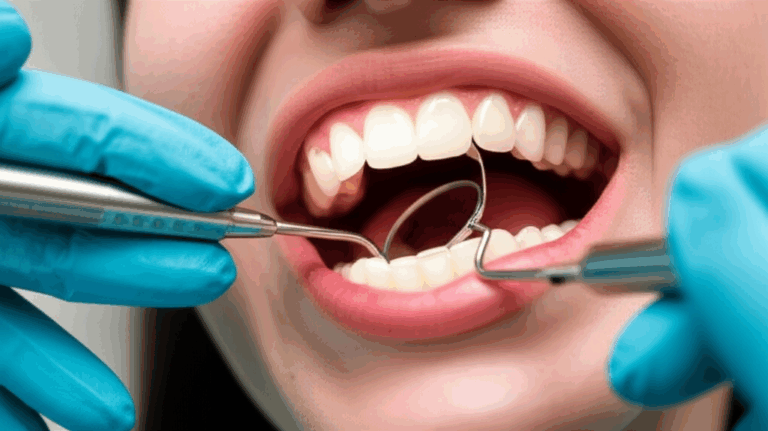
What is a Pediatric Dentist Called? Your Simple Guide to Kids’ Tooth Doctors
Ever wondered what to call the dentist who takes care of your child’s teeth? Is it “kid dentist,” “dentist for children,” or something else? In this easy guide, you’ll learn the answer and see why taking your child to a pediatric dentist is a great idea for healthy smiles. We’ll let you know what these special dentists do, when to visit, and how they help kids feel good at the dental office. Let’s find out how to keep your child’s teeth happy for life!
Table of Contents
1. Introduction: Why This Question Matters
If you’re a parent, you want the best for your child—especially when it comes to health and teeth. Healthy teeth mean less pain, easier eating, and lots more smiles. There are a lot of mouth doctors out there, so it’s no surprise if you’re confused about who does what.
So, what should you call the dentist for kids? People often say “kid’s dentist” or “children’s dentist,” but the real name is “pediatric dentist.” This little question leads to a whole world of special care and fun places that make dental visits better for kids.
2. What is a Pediatric Dentist Officially Called?
When looking for a dentist for your child, you’ll see a lot of different names, like:
- Kid dentist
- Children’s dentist
- Dentist for kids
- Baby dentist
But the real name is Pediatric Dentist. This title means the dentist is trained just for children, from babies up to teens.
Pediatric dentists get this title after extra years of learning about teeth, jaw growth, and how kids act and feel. Just like a child’s doctor is called a pediatrician, a pediatric dentist is the kids’ teeth doctor.
3. Why Do Kids Need a Special Dentist?
You might think: Can’t my child go to my dentist? The problem is, children’s teeth and mouths aren’t just smaller—they’re different! Children can get early cavities, like to suck their thumbs, and grow new teeth all the time.
Kids also often feel anxious at the dentist. Pediatric dentists know how to help kids feel safe, face their fears, and maybe even have fun.
If you struggle to get your child to brush or sit for an exam, you know how tough it can be. Pediatric dentists make things easier with special training, a gentle style, and fun, kid-friendly spaces.
4. Who Does a Pediatric Dentist Treat?
Pediatric dentists see all sorts of young patients, like:
- Babies: Even before first words, babies can get cavities! Pediatric dentists check gums and help parents clean tiny teeth.
- Toddlers & Little Kids: Just starting brushing and flossing? Pediatric dentists help both kids and parents learn these important habits.
- School-Age Kids: Permanent teeth come in, and dentists watch that everything lines up and use things like sealants to stop cavities.
- Teenagers: With new teeth, braces, and a focus on having a nice smile, teens need special care too.
- Kids with Special Needs: Some need more time, kindness, or a different approach. Pediatric dentists are trained to help all kids do well.
For every age, pediatric dentists change the way they care to fit each child best.
5. What Training Does a Pediatric Dentist Have?
It takes a lot of learning to be a pediatric dentist! Here’s what they do:
- First: Four years of dental school, getting a DDS or DMD degree.
- Next: Two or three extra years of training about kids’ teeth, jaws, child behavior, and special needs.
- Some get board-certified, which means they take tough tests to prove they’re experts.
- They keep learning new things all the time, so they’re always up-to-date.
All this study is so pediatric dentists can give the very best care to your child’s mouth as it grows.
6. What Does a Pediatric Dentist Do?
You’ll be surprised by how much pediatric dentists do! They don’t just fix cavities or pull teeth.
You can expect things like:
- Baby mouth checkups: They spot early problems, even bottle tooth decay.
- Checkups and cleanings: Fluoride to protect teeth and sealants to block off sugar bugs (cavities).
- Finding and treating problems: Cavities, gum problems, crooked teeth, and injuries from trips or falls.
- Fixing teeth: Fillings, small crowns just for kids, or spacers to hold places for new teeth.
- Looking for braces needs: Pediatric dentists can let you know early if your child might need braces later.
- Tips for eating and brushing: They help with advice on snacks, brushing, flossing, and watching out for sugary drinks.
Fun fact: Many offices use smaller tools, bright rooms, and even cartoons on the ceiling. Some offer laughing gas or calming medicines for really worried kids, with your OK.
7. How Are Pediatric Dental Offices Different?
As soon as you walk into a pediatric dental office, you’ll spot the difference: bright chairs, smiling faces, games, books, and cartoons playing. Everything is set up to help kids feel comfortable and happy.
They also use tricks to help kids relax, like:
- Tell-Show-Do: First, they tell kids what will happen, show them on a toy or finger, then do it gently—no surprises!
- Rewards: Stickers or a high-five make kids proud of looking after their teeth.
- Parents welcome: Often, parents can stay with kids, which helps them feel safe.
These little things really help kids trust their dentist and set the stage for good habits.
8. General Dentist vs. Pediatric Dentist – What’s the Difference?
It’s like this: for a new baby, you’d see a pediatrician, not just any doctor. The same goes for teeth!
General dentists treat all ages, but might not have deep training in kids’ teeth or worries.
Pediatric dentists only see kids and know about child feelings, growth, safe medicines, and special problems.
Here’s a simple table:
| General Dentist | Pediatric Dentist |
|---|---|
| Sees everyone | Only kids and teens |
| Regular dental school | Extra years just for children’s care |
| Grown-up tools | Smaller tools and fun spaces |
| May see kids sometimes | Always see kids |
| Less practice with child injuries | Great with kid dental emergencies |
For your child’s smile, a pediatric dentist is the right choice!
9. When Should My Child First See a Pediatric Dentist?
You may be surprised: Experts say babies should go by their first birthday or six months after the first tooth appears.
These early visits are important—not just to check for problems, but to make a “dental home” where your child can always get help. The sooner you start, the lower the risk of cavities and big dental bills in the future.
10. How to Find the Right Pediatric Dentist
Picking a dentist isn’t just about choosing the closest one. Try these tips:
- Look for a fun place. Are there toys, books, smiles, and friendly helpers?
- Check training. Is the dentist certified for pediatric dentistry?
- Ask about nervous kids or emergencies. How do they help if a child is scared or something happens?
- Ask which insurance or payment they take. Many accept lots of plans and children’s health programs.
- Read reviews or ask friends. Other parents or your child’s doctor can help pick a good one.
Most of all, go with your gut! The right pediatric dentist will make you and your child feel safe and listened to.
If you want good crowns or retainers for your child’s teeth, check out china dental lab for strong work and safe stuff.
11. FAQs about Pediatric Dentists
Q: Do pediatric dentists only look after baby teeth?
A: No! They look after baby, mixed, and adult teeth all the way through the teen years.
Q: Do I need a referral to see a pediatric dentist?
A: Most of the time, you don’t need a referral. Just call for an appointment. If you have special insurance, check their rules.
Q: What if my child is afraid?
A: Pediatric dentists are used to this! They use gentle words, explain what’s going on, and sometimes give rewards to help.
Q: Can kids with special needs see a pediatric dentist?
A: Yes! Pediatric dentists are trained to help all children, no matter what medical or behavior issues they have.
12. Summary: Key Points to Remember
- The real name for a kid’s dentist is pediatric dentist.
- They go to school extra years just to learn how to care for children’s teeth.
- They see babies, kids, teens, and kids with special needs.
- Their offices are set up to make children feel happy and safe.
- These dentists help avoid cavities and start good habits early.
- Your child should see the dentist by their first birthday.
- Ask questions and choose a dentist who makes your child feel good and comfortable.
The right dentist will help your child get strong, healthy teeth for life. Pediatric dentists have just the right training and heart to make smiles last!
*Expert review by Dr. Joe Dental, board-certified pediatric dentist.
References: American Academy of Pediatric Dentistry, American Dental Association, CDC Oral Health.*








